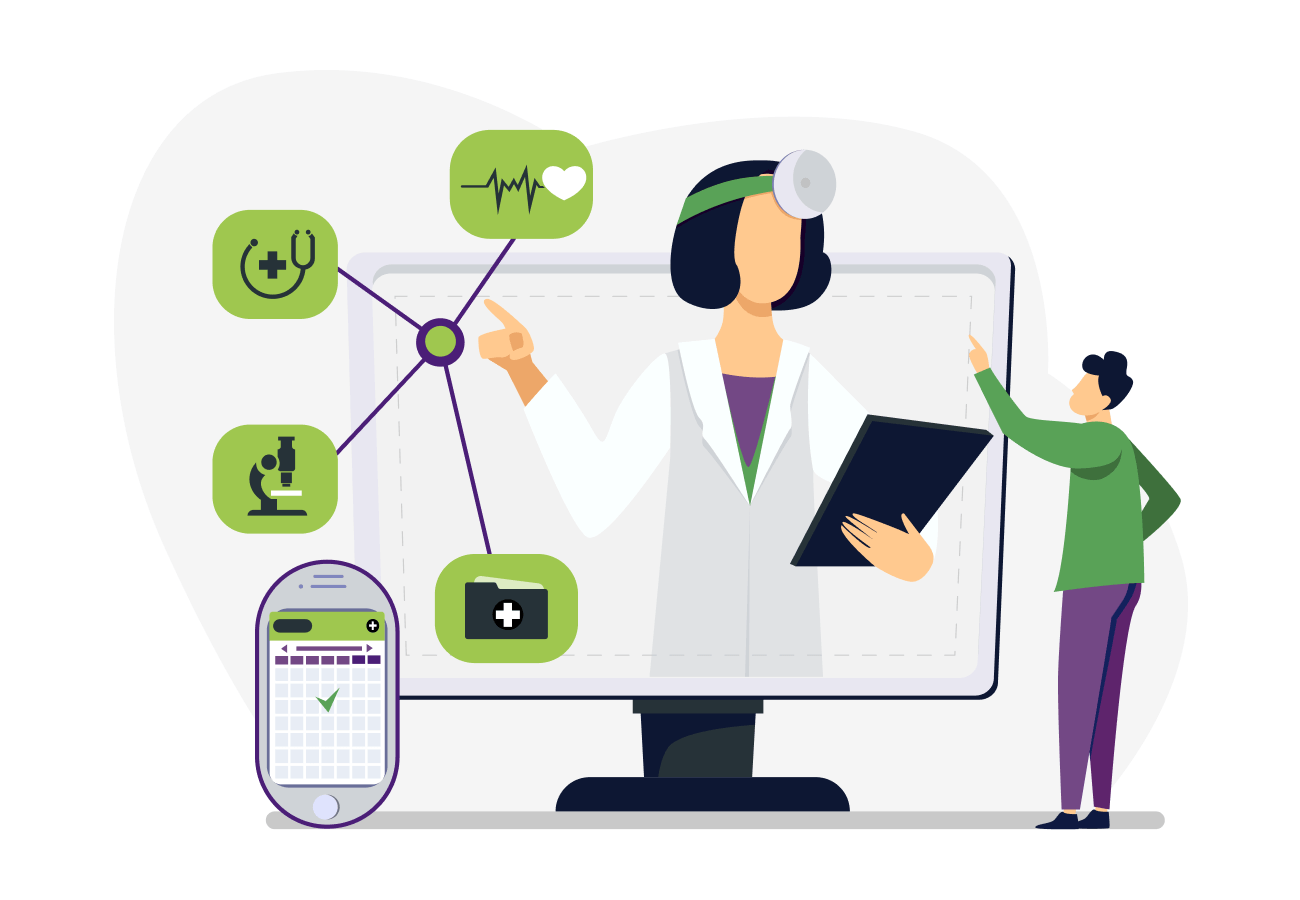Taking Those First Steps: Accessing Treatment for Substance Use Disorders

Often times, the toughest part of maintaining your mental and physical health is figuring out where to start. This is especially true for those living with a substance use disorder. If you or a loved one is misusing drugs or alcohol, or dealing with addiction, the first step to seeking treatment can be difficult to navigate.
You may have questions about what resources are available and whether those resources fit your needs. You may simply need guidance on how to access treatment and how to navigate your health benefits.
That’s why we’ve compiled the following list of information and resources that can guide you through what can be a confusing and stressful process.
COVID-19

One impact of the coronavirus pandemic has been an increased awareness in the resources available, whether you are looking for ways to care for your mental health, seeking treatment for addiction, or even looking to continue your recovery.
For CDPHP members, your first call should be to the CDPHP Behavioral Health Access Center at 1-888-320-9584. This phone number is also listed on the back of your CDPHP ID card, so make sure you keep the card in your wallet or close to you for reference.
Our team can:
- Connect you with doctors and providers as well as community resources such as addiction treatment and recovery services
- Help navigate through any potential changes to these services brought on by the impacts of the coronavirus pandemic
- Answer questions and address concerns you may have about what your CDPHP plan will cover as your seek treatment
It’s important to note that many programs and treatment options remain available even while restrictions are in place on what businesses can be open. Be sure to check with your local county health department as well for alternative resources and treatment options in place. For example, in Rensselaer County, officials are offering curbside delivery of Naloxone for anyone who may need it.
Before you take the first step…

The following are resources that can help you make informed decisions for yourself, or to support someone you care about.
- Identifying the types of treatment available can help to guide you or a loved one as you begin to address addiction.
- The overuse and abuse of opioid medications can lead to serious and potentially life-threatening health problems. CDPHP has compiled information about the risks of these medications, and tips that can help you safely store and dispose of these medications.
- If you’re concerned about a loved one, but don’t know how to get them the help they need, be sure to seek support for not only them, but for yourself as well. There are tools you can use to play a central role on their path to treatment, while also ensuring that you are caring for your own health.
Supporting you at home

In many cases, the biggest hurdle to seeking treatment can simply be getting there. Even if you can’t make it to a doctor’s office, you have a number of options available for meeting or talking with someone who can help.
If you need immediate support, your first call can be to the number listed above. On nights, weekends, and holidays, you can also call Contact Lifeline directly at 1-855-293-0785.
Doctor On Demand lets you visit with a doctor by video 24/7 for both medical and mental health services, including treatment for depression and anxiety. Board-certified doctors can discuss your health history, review symptoms, and recommend treatment.
Doctor On Demand is a convenient alternative to heading to urgent care or the emergency room, and there are no surprises, as you’ll be told at the beginning of each visit how much you’ll have to pay out of pocket (costs vary by plan type).
The following are just some of the resources and organizations available for those who are seeking to attend mental health appointments by phone or video chat:
- Capital Counseling: (518) 462-6531
- Common Sense MH, LLC: (518) 350-7286
You can also seek support from the Crisis Text Line. Text the word HOME to 741-741 for support 24 hours a day (AT&T, T-Mobile, Sprint, and Verizon customers can text free; standard text message rates apply for all other plans).
Keep yourself going

There are a number of resources available if you begin to feel isolated or aren’t sure where to turn.
If you begin to struggle, or feel like you need support, CDPHP can help. Call the Behavioral Health Access Center at the number on the back of your ID card, and we can help connect you to the support you need, as well as programs and tools that can help you to improve your overall health as part of your recovery.
You may also be able to connect quickly with your CDPHP Care Team through the Valera app on your smartphone. With Valera, you can explore resources selected just for you, chat with a case manager, and receive reminders about your care and any upcoming appointments you may have scheduled.
Another option is to consider attending a meeting in your community. You can search easily for meetings near you such as Narcotics Anonymous, Alcoholics Anonymous, and Al-Anon. Options are also available for online and virtual meetings that you can attend from home.
It’s important to avoid underestimating the connection with family, friends, and anyone providing support to you, specifically when you are at a distance. Phone or video calls, emails, and social media can all be tools that help you to feel connected and give you a chance to share how you’re feeling with those close to you. They may be able to provide you a little extra support that can help you feel better.
A few things to keep in mind
One common theme appears among all the items listed – there is support available through a wide variety of resources, and you don’t have to go it alone. If you begin to struggle, or find that you aren’t feeling at your best, it isn’t a sign of failure. The resources above can be a starting point and an outlet for you or a loved one as you get back on track or find ways to revise your treatment program.
It’s also a good idea to stay in touch with your primary care doctor (or find one in your area) and attend routine checkups, which may be available by video. This is important not only to ensure that you have the medications you may need, but to also provide you with support on the path to recovery and better health.
 The Daily Dose
The Daily Dose
Comments are closed.